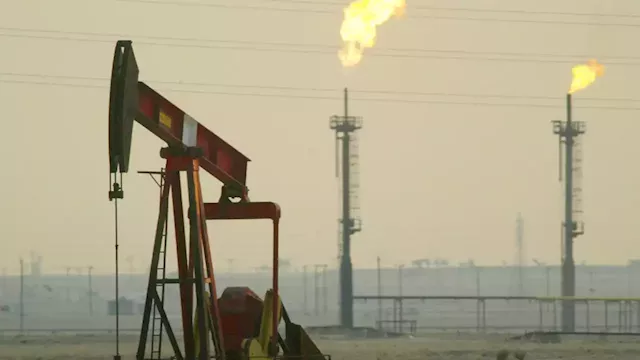It’s no secret that governments and regulators have been ramping up enforcement of greenhouse-gas regulation. But here’s something counterintuitive: Shares of some oil and energy companies — players in so-called dirty industries — may deliver better investment returns relative to companies in cleaner industries, even amid tightening regulatory constraints.
For example, the table below shows the S&P 500 SPX companies with the lowest transition risk, based on a statistical analysis of historical price behavior in different energy price environments, as modeled by the climate analytics firm Entelligent. For comparison, here are the 10 least-risky S&P 500 stocks in another scenario, this one known as Below 2°C — in line with the far more ambitious commitments made under the Paris Climate Agreement.
None of this means that all oil and energy companies must fall to the back of the line in climate-risk terms in a Paris scenario. What it does mean is that, generally speaking, in a scenario that sets the bar for carbon reduction high, oil and energy firms will have to work harder, confront the high cost of responding to unplanned changes, and on balance be less likely to succeed.
대한민국 최근 뉴스, 대한민국 헤드 라인
Similar News:다른 뉴스 소스에서 수집한 이와 유사한 뉴스 기사를 읽을 수도 있습니다.
![How $100 Oil price impacts stock and forex market trends [Video]](https://i.newsformal.com/images/2023/9/18/fxstreetnews/how-100-oil-price-impacts-stock-and-forex-market-t-how-100-oil-price-impacts-stock-and-forex-market-t-3C644CD22BDE81593AEFEF9A78C75B16.webp?w=640) How $100 Oil price impacts stock and forex market trends [Video]In this video, we delve deep into how will crude oil hitting $100 affect the forex and stock market. Discover the strategies, tactics and what to do t
How $100 Oil price impacts stock and forex market trends [Video]In this video, we delve deep into how will crude oil hitting $100 affect the forex and stock market. Discover the strategies, tactics and what to do t
더 많은 것을 읽으십시오 »
 California AG sues top 5 oil companies alleging decades-long false advertising campaignCalifornia Attorney General Rob Bonta announced Saturday that his office is suing the top five oil companies for allegedly misleading the public on climate change.
California AG sues top 5 oil companies alleging decades-long false advertising campaignCalifornia Attorney General Rob Bonta announced Saturday that his office is suing the top five oil companies for allegedly misleading the public on climate change.
더 많은 것을 읽으십시오 »
